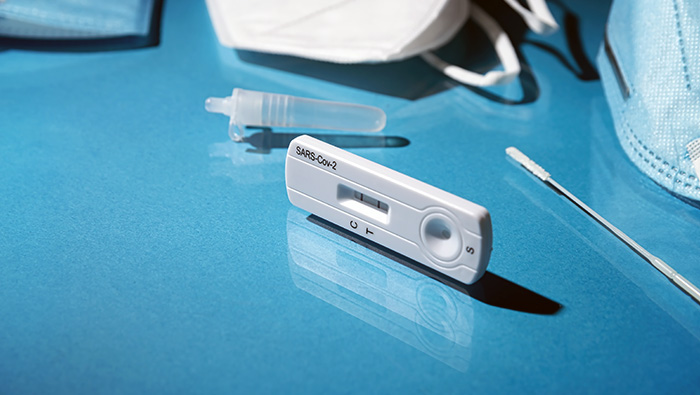On February 4th, 2022, the U.S. Department of Labor (DOL), Department of Health and Human Services (HHS), and Department of the Treasury (collectively, the Departments) released Frequently Asked Questions (FAQs) Part 52 clarifying group health plan coverage of over-the-counter (OTC) COVID-19 tests. Specifically, the FAQs address flexibility in how plans provide access to OTC COVID-19 tests under previously established requirements. In addition, the clarifying guidance answers several questions about the coverage rules originally outlined in earlier guidance. Previously, on December 30th, 2021, the DOL announced a separate policy regarding group health plan disclosure requirements.
Background on Guidance
Released on January 10, the Departments’ FAQs Part 51 established guidelines regarding implementation of the Families First Coronavirus Response Act (FFCRA), the Coronavirus Aid, Relief, and Economic Security Act (CARES Act), and the Affordable Care Act. Generally, the guidelines outlined a “safe harbor” non-enforcement policy for limiting OTC at-home COVID-19 test reimbursement. In sum, plans can limit reimbursement of such tests. Thus, reimbursement may be up to $12 per test or the actual cost of the test, whichever is less. Markedly, to qualify under the safe harbor, the policy requires plans to:
- provide adequate access to OTC COVID-19 tests through the direct coverage program without upfront out-of-pocket expenditure by the participant,
- ensure availability of tests through either a network of preferred providers or direct-to-consumer shipping, and
- allow participants no less than 8 tests per 30-day period (or per calendar month).
New FAQs on COVID-19 Tests and “Safe Harbor”
Overall, the Departments’ new guidance offers flexibility for plans to meet the safe harbor requirements when offering OTC COVID-19 tests. Additionally, the FAQs cover inquiries about direct-to-consumer shipping programs and the requirement of “adequate access” to tests. The following questions and answers provide pertinent information clarifying the current guidance:
Q1: Do plans and issuers have flexibility in how they establish a direct-to-consumer shipping program and direct coverage through an in-person network in order to qualify for the safe harbor?
A: Plans must make tests available through at least one direct-to-consumer shipping mechanism and at least one in-person mechanism. However, in specific limited circumstances, a plan can offer adequate access to tests without needing both. Moreover, the definition of “direct-to-consumer shipping” includes online or telephone ordering. Finally, a direct coverage program does not have to cover all FDA-approved at-home COVID-19 tests.
Q2: What if a plan is unable to provide adequate access to OTC COVID-19 tests through its direct coverage program due to a supply shortage?
A: They may still be compliant. In that circumstance, a plan or issuer that otherwise meets the requirements of the safe harbor may continue to limit reimbursement to $12 per test (or the full cost of the test, whichever is lower) for tests purchased outside of the program.
Q3: Can a plan address suspected fraud and abuse related to the reimbursement of tests purchased by a participant from a private individual or via online auctions, resale marketplaces, or resellers?
A: Yes. The FFCRA prohibits medical management of coverage of COVID-19 diagnostic testing. However, plans are permitted to take reasonable steps to prevent, detect, and address fraud and abuse.
Q4: Do requirements apply to COVID-19 tests that use a self-collected sample but require processing by a laboratory or other health care provider to return results?
A: No. The requirements apply to OTC COVID-19 tests that are approved, cleared, or authorized for use by the Food and Drug Administration (FDA) and that can be obtained without a prescription and completely used and processed without the involvement of a laboratory or other health care provider.
Q5: How does a plan’s test coverage impact health flexible spending arrangements and similar account-based plans?
A: As a medical expense, tests are generally reimbursable by health flexible spending arrangements (FSAs) and health reimbursement arrangements (HRAs). However, as plans must now cover OTC COVID-19 tests, an individual cannot seek reimbursement from both the plan and FSAs or HRAs.

